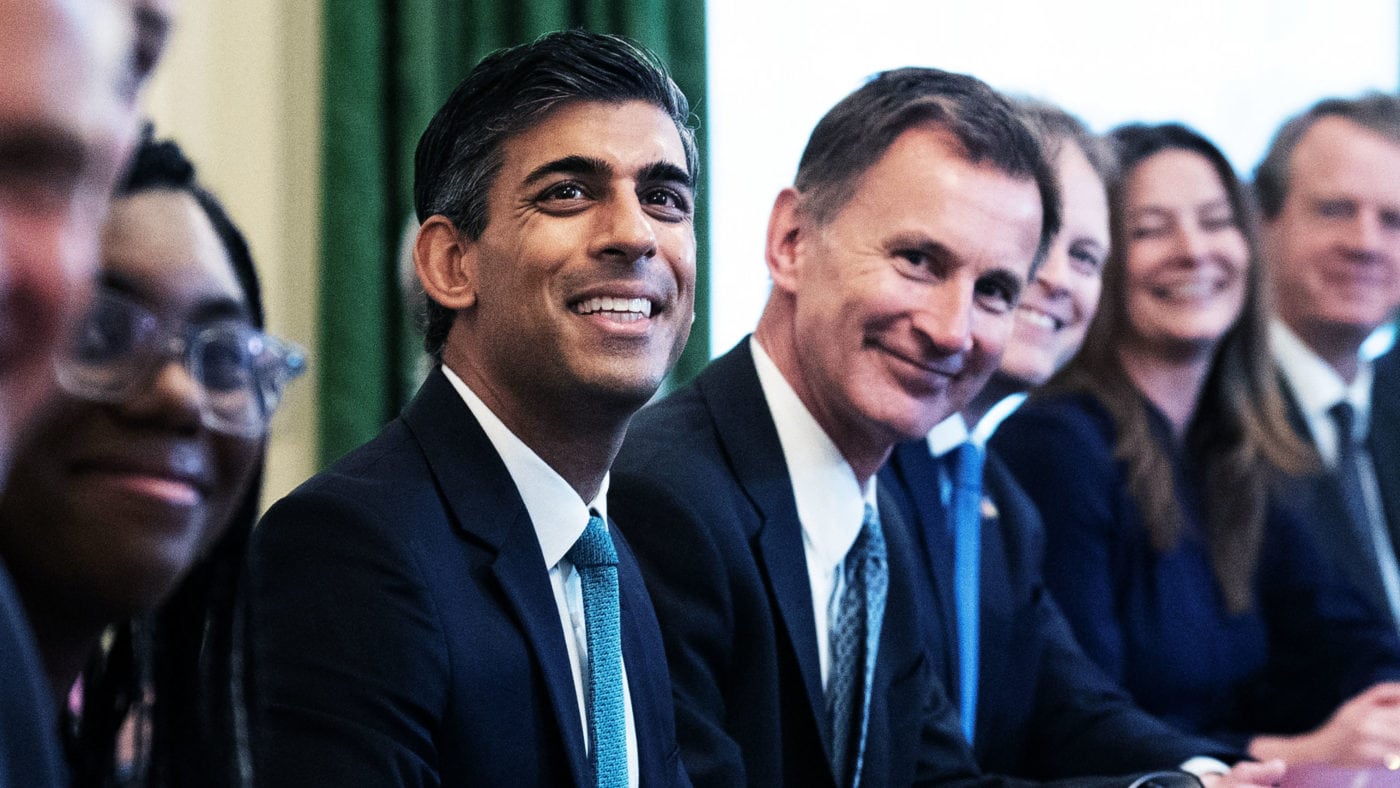Another week, another mini-reset from the Sunak government.
Where the PM’s Mais Lecture last year set out three priorities (‘Capital. People. Ideas’) on Friday Jeremy Hunt went for ‘four pillars’: Enterprise, Education, Employment and Everywhere, which is really just one more way of saying ‘Levelling Up’.
Lest this should all seem a bit vague and abstract, the backdrop to the Chancellor’s speech featured the Government’s ‘Five Pledges’ on more concrete issues like migration, NHS waiting lists and inflation. So, that’s three pillars, four priorities, five pledges – plenty to be getting on with, even before immediate political crises like, say, the PM sacking his party’s chairman.
There was also some dissonance between Hunt’s ambitions and current government policy. For instance, Hunt said he wanted the UK to have ‘nothing less than the most competitive tax regime of any major country’, yet his government is about to remove the ‘super-deduction’ and hike corporation tax by six percentage points, as well as clobbering energy companies with windfall taxes.
One line that caught my eye was Hunt’s claim that we need more ‘optimism’ as an antidote to the ‘declinism’ of much of our media. The Chancellor surely has a point that some of the negativity about the UK is overdone. We still have many strengths, especially in the sort of high-value, high-tech sectors that will become ever more important as the century draws on.
It strikes me, though, that what we need is neither optimism, nor declinism, but realism. Not ‘realism’ as a kind of clever-clever pessimism, in which discussing how ghastly and doomed we are is seen as a form of sophistication, but in two distinct senses.
First, as Hunt said in his speech, realism means acknowledging that the UK performs very well in some very important areas, but could do much better. A case in point is the ‘golden triangle of London/Oxford/Cambridge, which is already a huge success story but would be an even bigger one if the government had faced down the Nimbys and gone ahead with the Ox-Cam Arc.
Second, facing up to how bad some of our problems have got and resolving to take serious, long-term action. So, rather than pretending that a taskforce here or an extra pot of cash there can ‘fix’ NHS, our demographic pressures necessitate a fundamental rethink of what the health service does – as CapX’s founder Maurice Saatchi sets out in today’s Sunday Telegraph. (Maurice also wrote two reports for the Centre for Policy Studies on how this might be done, both well worth a read).
And it’s not like the NHS is the only key service in trouble: elderly social care (discussed by Damian Green MP here), child social care (see Robert Colvile’s latest Sunday Times column) and justice (see Stephen Pollard here) are in a state of profound dysfunction. Not to mention housing and childcare costs, which blight so many lives and hold back our economic performance.
That might seem a rather overwhelming list, especially on top of our very obvious economic problems. But the answer to a mounting to-do list is neither optimism, nor declinism, but doughty, focused policy work. Whether you can turn that principle into a pillar, priority or pledge remains to be seen…
Click here to subscribe to our daily briefing – the best pieces from CapX and across the web.
CapX depends on the generosity of its readers. If you value what we do, please consider making a donation.


